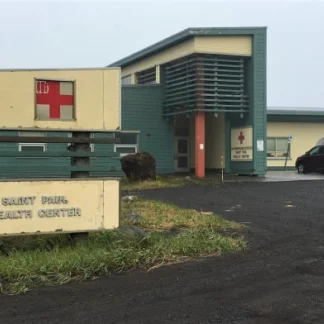Aleut Community of Saint Paul Island
Aleut Community of Saint Paul Island offers culturally-responsive outpatient men...
Alaska's Saint Paul Health Center- Saint Paul Island offers mental health care and addiction treatment through their alcohol and drug rehab services. They offer comprehensive addiction treatment, tobacco prevention programming, and mental health care to adult men and women. Their levels of care include intensive outpatient treatment and traditional outpatient treatment.
Intensive outpatient meets for a minimum of nine hours per week. Clients participate in addiction treatment and mental health counseling. Case management services, crisis and emergency services, wellness and adversity classes, grief and loss support, experiential art therapy, and living beyond pain classes are provided.
Recovery-oriented curriculum helps clients work through their addictive patterns while learning new coping skills and strategies.
Individual therapy, group therapy, and family therapy are provided. Clients participate in recovery-oriented classes that focus on a wide variety of topics designed to help each person cultivate specific skills that help them maintain recovery period.
Families may participate in educational programming that is designed to help them motivate their loved ones to enroll and engage in addiction treatment long-term.
Contact us for more information: (907) 546-8300

Connect with Saint Paul Health Center by calling their admissions team directly.
(907) 546-8300 Website Get DirectionsGroup therapy is any therapeutic work that happens in a group (not one-on-one). There are a number of different group therapy modalities, including support groups, experiential therapy, psycho-education, and more. Group therapy involves treatment as well as processing interaction between group members.
Trauma therapy addresses traumatic incidents from a client's past that are likely affecting their present-day experience. Trauma is often one of the primary triggers and potential causes of addiction, and can stem from child sexual abuse, domestic violence, having a parent with a mental illness, losing one or both parents at a young age, teenage or adult sexual assault, or any number of other factors. The purpose of trauma therapy is to allow a patient to process trauma and move through and past it, with the help of trained and compassionate mental health professionals.
Trauma therapy addresses traumatic incidents from a client's past that are likely affecting their present-day experience. Trauma is often one of the primary triggers and potential causes of addiction, and can stem from child sexual abuse, domestic violence, having a parent with a mental illness, losing one or both parents at a young age, teenage or adult sexual assault, or any number of other factors. The purpose of trauma therapy is to allow a patient to process trauma and move through and past it, with the help of trained and compassionate mental health professionals.
Aleut Community of Saint Paul Island offers culturally-responsive outpatient men...
Aleut Community of Saint Paul Island is a public rehab located in Saint Paul Isl...